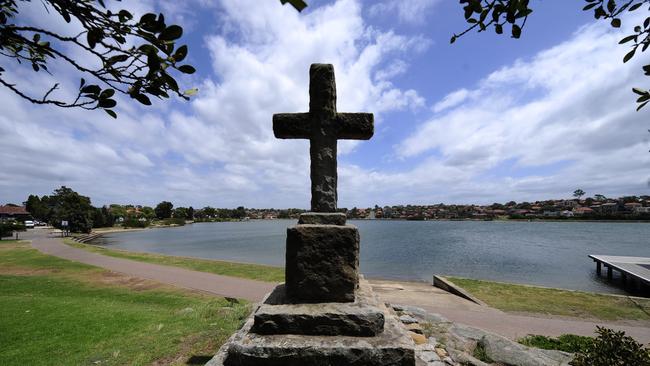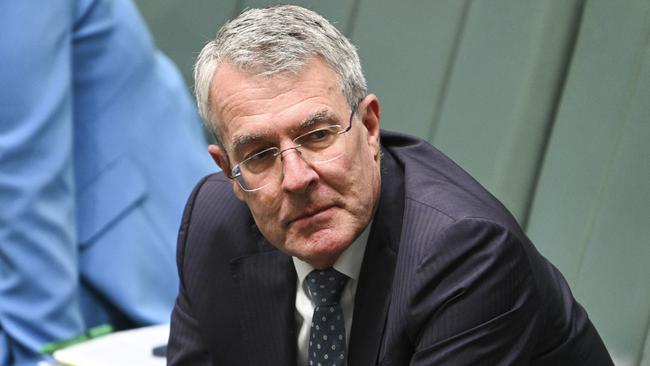Sex Discrimination Act reform proposal a breach of faith
Terms of reference for the report on religious schools was more limited than Labor’s pledge.

Last month the government released the long-awaited report of the Australian Law Reform Commission on religious educational institutions. In a letter to Anthony Albanese the nation’s pre-eminent religious leaders asserted that the recommendations “will extinguish the distinct and authentic character” of “the overwhelming majority of faith-based schools”. Is this mere hubristic posturing?
The report proposes the removal of the exemption at section 38 of the Sex Discrimination Act 1984 to prevent religious schools from discriminating against staff or students under that act. Corresponding amendments are recommended to the Fair Work Act, permitting a school to discriminate against prospective, but not existing, staff on the basis of religion alone.
The result will be that schools will need to, first, not engage in direct discrimination against any teacher or student on the basis of their sex, sexuality, gender identity or marital or relationship status. Second, schools will need to argue that any actions that would otherwise be indirect discrimination on the basis of any of those attributes are reasonable and proportionate.
To comprehend the depth of the leaders’ concern we must grapple with this distinction. Direct discrimination occurs when conduct is directly grounded on the complainant’s status (for example, their gender) and where the complainant is treated less favourably when compared with someone without such a characteristic.
Indirect discrimination is a latter development in the law, recognising that policies and practices that appear neutral or non-discriminatory can have a disproportionate impact on a person on the basis of a protected characteristic. The key test for indirect discrimination is that if the policy or practice is reasonable, it will not be unlawful. Direct discrimination can never be reasonable.
This is by no means a sure footing on which to place the international human right that protects “the liberty of parents to ensure the religious and moral education of their children”.
In an article published in the Modern Law Review last year Colin Campbell and Dale Smith correctly state that “there is considerable disagreement about how the distinction between these two forms of discrimination should be understood”.
Sandra Fredman also has noted that “despite in principle having apparently clearly demarcated boundaries, the interaction between direct and indirect discrimination remains … tense and conflictual”, positing that courts “have found it difficult to draw a bright line” between the two. Acknowledging this uncertainty, the Canadian Supreme Court has instead sought to rely on defences and remedies.
The ALRC’s proposal flies in the opposite direction to that trend, forcing religious schools, their staff, students and families to navigate this uncertain legal terrain. To illustrate the ambiguity, consider the rule that a teacher must teach and faithfully model the beliefs of a school. If a teacher teaches or acts in a manner that undermines the beliefs of the school and is disciplined, is that impermissible direct discrimination or is it permissible reasonable indirect discrimination?
Moreover, the ALRC’s proposal would amount to a transferral of the decision as to whether a school can maintain its religious ethos from parliament to the judiciary. In the uncertainty between direct and indirect discrimination and in the broad judicial discretion conferred by the reasonableness and proportionality tests, parliament would be washing its hands of its obligations to ensure compliance with Australia’s international obligation to protect the parental right.

However, as religious leaders recalled in their letter to the Prime Minister, in 2019 the prior ALRC president, Justice Sarah Derrington, released a reform model for religious schools that she said would be effective in ensuring Australia complied with the relevant requirements of international law.
The model declared that a religious institution “does not discriminate” where its acts are “consistent (with) its religious beliefs and practices or its religious purpose”.
This proposal resolves the tension between discrimination and the ability of a school to “build a community of faith” within both her terms of reference and the terms of reference issued by Attorney-General Mark Dreyfus KC, while avoiding all of the above uncertainties.
The model released by Derrington exhibits fidelity to the international law principle that when a religious institution acts in accordance with its beliefs it is manifesting a legitimate right. It is not relying on an exemption or second order right. The same principle also was incorporated within the Religious Discrimination Bill 2022. The model also enables religious schools to preference staff, thus avoiding the uncertainties that arise under genuine occupational/inherent requirements tests. What we are thus presented with is directly conflicting proposals from successive ALRC commissioners.
In my submission to the ALRC I suggested a clarification to the Derrington model that would prevent courts from assessing the content or the accuracy of an asserted religious belief. I suggested the retention of the existing requirements that a school must demonstrate that an institutional ethos exists and that it is consistent in the application of that ethos. I also recommended that the existing requirement that schools be required to act in good faith be retained, to ensure they clearly articulate their expectations for staff and afford procedural fairness.

In a subsequently issued letter to Albanese the nation’s religious leaders stated “we expect you to uphold your election commitment to maintain the right of religious educational institutions to preference people of their own faith, and not to compromise this to secure the support of the Greens”. And here is the key point.
The terms of reference given to the ALRC by Dreyfus required that the proposals ensure that religious educational institutions “must not discriminate against a member of staff”. However, Labor’s election commitment was not so limited: Labor would “protect teachers from discrimination”. The commitment on which the government was elected contemplates a greater range of legislative options than those the ALRC was requested to provide. Any number of options that protects teachers beyond the ALRC’s current recommendations can be contemplated, including Derrington’s proposal.
Australia’s strong and exponentially growing independent private schooling sector is the envy of many Western nations. As a former UN special rapporteur has said, “private schools constitute a part of the institutionalised diversity within a modern pluralistic society”.
The nation’s religious leaders are correct when they say the ALRC’s current recommendations, if effected, would efface that diversity.
Mark Fowler is principal of Fowler Charity Law, an adjunct associate professor in the law school of the University of Notre Dame Australia and an external fellow at the Centre for Public, International and Comparative Law, University of Queensland. This is an edited extract from an address delivered on Friday at the University of Notre Dame Australia’s annual Religious Liberty Conference.







To join the conversation, please log in. Don't have an account? Register
Join the conversation, you are commenting as Logout